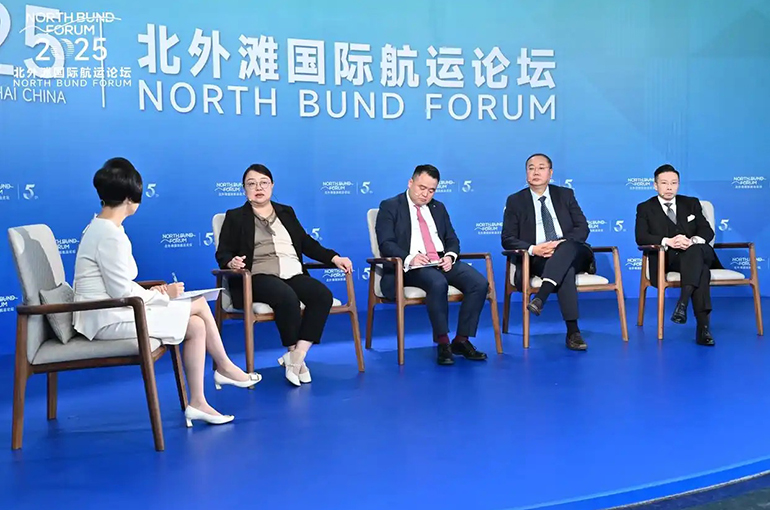 Experts From Shanghai's Shipping Industry Discuss Global Challenges at North Bund Forum
Experts From Shanghai's Shipping Industry Discuss Global Challenges at North Bund Forum(Yicai) Oct. 20 -- Shanghai's shipping industry experts gathered at the North Bund Forum in the city to discuss how to respond to global economic and trade changes to ensure smooth supply chain operations and support the transition of the local international shipping center from "essentially completed" to "fully completed."
The shipping industry is facing multiple challenges, Zhang Jieshu, secretary-general of the Shanghai International Shipping Institute, said during the experts' meeting at NBF Flow Live, a broadcast room jointly set up by the organizing committee of the North Bund Forum and Yicai.
Sluggish global economic growth and inflation are suppressing consumer demand, trade disputes are causing imbalances in shipping capacity, shifting supply chains are promoting regionalization in shipping, geopolitical issues are leading to adjustments in routes, and the green transition is increasing cost pressures, Zhang pointed out.
Rerouting vessels around the Cape of Good Hope due to the Red Sea crisis has significantly increased ton-kilometer levels, posing a big test for the resilience of the shipping sector, Zhang pointed out. Shanghai should strengthen its efforts in enhancing hub capabilities, improving the shipping service ecosystem, and seizing opportunities in digitalization, going green, and intelligence, she said, adding that it's also important to participate in the formulation of international regulations to gain a voice in the industry.
Intercontinental long-distance transportation volumes have dropped by about 2 percent, while regional shipping demand has increased by 6 percent, highlighting a clear trend toward trade regionalization, said Chen Zheng, vice president of the Shanghai International Freight Forwarders Association. Chinese firms' investment in building overseas warehouses has surged three times from the pre-2020 levels, accelerating the trade of semi-finished goods and the setup of overseas plants, Chen noted.
In addition, the Belt and Road Initiative has laid a solid foundation for the global expansion of Chinese logistics companies, according to Chen.
The green transition is impacting ship valuation and supply chain costs, becoming a "must-answer" question rather than a "choice," noted Wang Xiang, general manager of Veson Nautical in China. Large shipowners need to promote technological or management upgrades, while small and medium-sized ones should allow space for vessel modifications and strengthen their compliance capabilities or face the risk of being marginalized, Wang pointed out.
Wu Hao, general manager of China Construction Bank's Shanghai global financial service center, proposed innovative pathways from a financial perspective, including leveraging the internationalization of the Chinese yuan to achieve "instant" cross-border payments, utilizing the free trade account system to provide settlement and hedging services, promoting innovations in cargo document pledge financing, and expanding into green finance.
Editor: Martin Kadiev